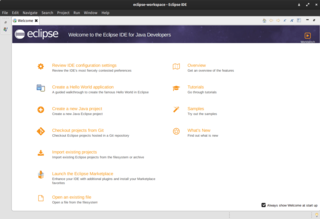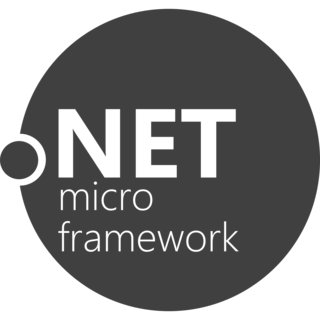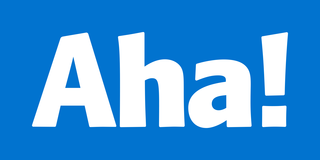Autodesk, Inc. is an American multinational software corporation that makes software products and services for the architecture, engineering, construction, manufacturing, media, education, and entertainment industries. Autodesk is headquartered in San Francisco, California, and has offices worldwide. Its U.S. offices are located in the states of California, Oregon, Colorado, Texas, Michigan, New Hampshire and Massachusetts. Its Canada offices are located in the provinces of Ontario, Quebec, and Alberta.

Eclipse is an integrated development environment (IDE) used in computer programming. It contains a base workspace and an extensible plug-in system for customizing the environment. It is the second-most-popular IDE for Java development, and, until 2016, was the most popular. Eclipse is written mostly in Java and its primary use is for developing Java applications, but it may also be used to develop applications in other programming languages via plug-ins, including Ada, ABAP, C, C++, C#, Clojure, COBOL, D, Erlang, Fortran, Groovy, Haskell, JavaScript, Julia, Lasso, Lua, NATURAL, Perl, PHP, Prolog, Python, R, Ruby, Rust, Scala, and Scheme. It can also be used to develop documents with LaTeX and packages for the software Mathematica. Development environments include the Eclipse Java development tools (JDT) for Java and Scala, Eclipse CDT for C/C++, and Eclipse PDT for PHP, among others.
Microsoft Visual SourceSafe (VSS) is a discontinued source control program oriented towards small software development projects. Like most source control systems, SourceSafe creates a virtual library of computer files. While most commonly used for source code, SourceSafe can handle any type of file in its database, but older versions were shown to be unstable when used to store large amounts of non-textual data, such as images and compiled executables.
CollabNet VersionOne is a software firm headquartered in Alpharetta, Georgia, United States. CollabNet VersionOne products and services belong to the industry categories of value stream management, devops, agile management, application lifecycle management (ALM), and enterprise version control. These products are used by companies and government organizations to reduce the time it takes to create and release software.

Scrum is a framework for project management with an initial emphasis on software development, although it has been used in other fields including research, sales, marketing and advanced technologies. It is designed for teams of ten or fewer members who break their work into goals that can be completed within time-boxed iterations, called sprints, no longer than one month and most commonly two weeks. The scrum team assesses progress in time-boxed daily meetings of 15 minutes or fewer, called daily scrums. At the end of the sprint, the team holds two further meetings: one sprint review intended to demonstrate the work done for stakeholders and elicit feedback, and one sprint retrospective intended to enable the team to reflect and improve.

The .NET Micro Framework (NETMF) is a .NET Framework platform for resource-constrained devices with at least 512 kB of flash and 256 kB of random-access memory (RAM). It includes a small version of the .NET Common Language Runtime (CLR) and supports development in C#, Visual Basic .NET, and debugging using Microsoft Visual Studio. NETMF features a subset of the .NET base class libraries, an implementation of Windows Communication Foundation (WCF), a GUI framework loosely based on Windows Presentation Foundation (WPF), and a Web Services stack based on Simple Object Access Protocol (SOAP) and Web Services Description Language (WSDL). NETMF also features added libraries specific to embedded applications. It is free and open-source software released under Apache License 2.0.
Altium Limited is an Australian multinational software company that provides electronic design automation software to engineers who design printed circuit boards. Founded as Protel Systems Pty Ltd in Australia in 1985, the company has regional headquarters in the United States, Australia, China, Europe, and Japan. Its products are designed for use in a Microsoft Windows environment and used in industries such as automotive, aerospace, defense, and telecommunications. Its flagship product, Altium Designer, is a software for unified electronics design.
Azure DevOps Server is a Microsoft product that provides version control, reporting, requirements management, project management, automated builds, testing and release management capabilities. It covers the entire application lifecycle, and enables DevOps capabilities. Azure DevOps can be used as a back-end to numerous integrated development environments (IDEs) but is tailored for Microsoft Visual Studio and Eclipse on all platforms.

Visual Studio is an integrated development environment (IDE) from Microsoft. It is used to develop computer programs, as well as websites, web apps, web services and mobile apps. Visual Studio uses Microsoft software development platforms such as Windows API, Windows Forms, Windows Presentation Foundation, Windows Store and Microsoft Silverlight. It can produce both native code and managed code.
Jira is a proprietary issue tracking product developed by Atlassian that allows bug tracking and agile project management.
In FOSS development communities, a forge is a web-based collaborative software platform for both developing and sharing computer applications. The term forge refers to a common prefix or suffix adopted by various platforms created after the example of SourceForge. This usage of the word stems from the metalworking forge, used for shaping metal parts.

RhoMobile Suite, based on the Rhodes open source framework, is a set of development tools for creating data-centric, cross-platform, native mobile consumer and enterprise applications. It allows developers to build native mobile apps using web technologies, such as CSS3, HTML5, JavaScript and Ruby. Developers can deploy RhoMobile Suite to write an app once and run it on the most-used operating systems, including iOS, Android, Windows Phone, Windows Mobile, Windows CE, Windows 10 Mobile and Windows Desktop. Developers control how apps behave on different devices. RhoMobile Suite consists of a set of tools for building, testing, debugging, integrating, deploying and managing consumer and enterprise apps. It consists of the products Rhodes, RhoElements, RhoStudio, RhoConnect, and RhoGallery, and includes a built-in Model View Controller pattern, an Object Relational Mapper for data intensive apps, integrated data synchronization, and a broad API set. These mobile development services are offered in the cloud and include hosted build, synchronization and application management.
Plastic SCM is a cross-platform commercial distributed version control tool developed by Códice Software Inc. It is available for Microsoft Windows, Mac OS X, Linux, and other operating systems. It includes a command-line tool, native GUIs, diff and merge tool and integration with a number of IDEs. It is a full version control stack not based on Git.

A kanban board is one of the tools that can be used to implement kanban to manage work at a personal or organizational level.
CodeXL was an open-source software development tool suite which included a GPU debugger, a GPU profiler, a CPU profiler, Graphics frame analyzer and a static shader/kernel analyzer.

Telerik AD is a Bulgarian company offering software tools for web, mobile, desktop application development, tools and subscription services for cross-platform application development. Founded in 2002 as a company focused on .NET development tools, Telerik now also sells a platform for web, hybrid and native app development.

Aha! is a cloud-based software company that provides product development software for companies in the United States and internationally. Aha! offers Software-as-a-Service (SaaS) products for organizations to set strategy, ideate, plan, showcase, build, and launch new products and enhancements.
Perforce, legally Perforce Software, Inc., is an American developer of software used for developing and running applications, including version control software, web-based repository management, developer collaboration, application lifecycle management, web application servers, debugging tools and Agile planning software.
Microsoft, a technology company historically known for its opposition to the open source software paradigm, turned to embrace the approach in the 2010s. From the 1970s through 2000s under CEOs Bill Gates and Steve Ballmer, Microsoft viewed the community creation and sharing of communal code, later to be known as free and open source software, as a threat to its business, and both executives spoke negatively against it. In the 2010s, as the industry turned towards cloud, embedded, and mobile computing—technologies powered by open source advances—CEO Satya Nadella led Microsoft towards open source adoption although Microsoft's traditional Windows business continued to grow throughout this period generating revenues of 26.8 billion in the third quarter of 2018, while Microsoft's Azure cloud revenues nearly doubled.







